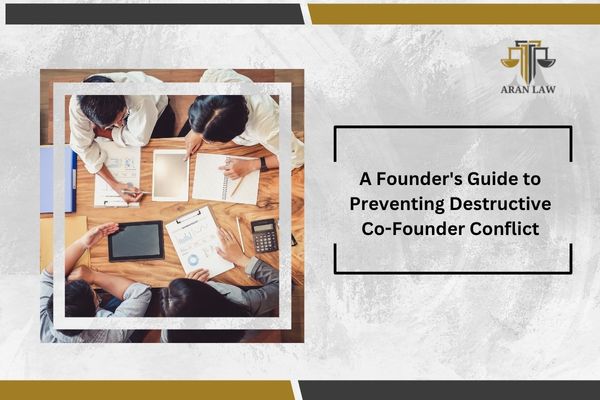More Startups Die from Suicide Than Murder: The Threat of Co-Founder Conflict
You have a game-changing idea, a solid business plan, and a co-founder you trust. What could possibly go wrong? As it turns out, the biggest threat to your startup might not be your competitors, but the person sitting next to you.
Data shows that a staggering 65% of startups fail due to Co-founder conflict. This isn’t just a statistic; it’s the number one reason ventures implode. Savvy investors know this, which is why they scrutinize team dynamics more than almost anything else. They aren’t just investing in an idea; they are investing in a team’s ability to execute it. And a team at war cannot win.
Also Read: What is a Broken Cap Table? How to Avoid This “Uninvestable” Red Flag
Why Co-Founder Conflict Is a Ticking Time Bomb for Investors
During due diligence, investors dig deep into the relationship between founders. They are looking for a stable, cohesive team that can weather the inevitable storms of startup life. When they see signs of trouble, they run.
Frequent disagreements, unresolved disputes, or clashing personalities are massive red flags because they signal instability. An investor has no interest in funding a civil war. They know that even the best idea will crumble if the leadership is dysfunctional.
Also Read: Dead Equity, Dead Startup: The Critical Danger of a Ghost Co-Founder
Cautionary Tales: When Founder Disputes Turn Deadly
History is littered with startups that had brilliant potential but were destroyed from within. These stories serve as powerful warnings.
The Metaversity Story: A Clash of Visions
The ed-tech startup Metaversity had a promising future, but its two co-founders had fundamentally different visions for the company. Neither was willing to compromise.
- The tension became so toxic that investors offered one founder ₹100K just to walk away.
- He refused.
- The irresolvable conflict and power struggle ultimately “drove Metaversity into the ground.”
The Zipcar Story: Unfair Equity and Unmet Expectations
The founders of Zipcar made a classic early-stage mistake: they hastily split the equity 50/50 without a clear discussion about roles or levels of commitment.
- When one founder failed to pull their weight, resentment began to fester.
- After a year and a half of turmoil and damaged friendship, the CEO had to fire her co-founder.
- This painful and distracting conflict could have been avoided with an upfront, fair agreement that reflected each person’s actual contributions.
How to Build an Investor-Ready (And Conflict-Proof) Founding Team
Avoiding co-founder conflict isn’t about finding someone you never disagree with. It’s about building a partnership strong enough to handle disagreements constructively. Here’s how:
- Align on a Unified Vision: Before you write a single line of code or create a single pitch deck, ensure you are 100% aligned on the company’s mission, values, and long-term goals. Are you building a lifestyle business or aiming for a billion-dollar exit? Get on the same page now.
- Define Roles and Responsibilities Clearly: Who is the CEO? Who is in charge of tech, sales, or marketing? Avoid the Zipcar trap by explicitly defining each founder’s role and responsibilities. This prevents turf wars and resentment over who is doing more work.
- Create a Fair Equity Agreement: Don’t just default to a 50/50 split. Have an honest conversation about each founder’s expected contribution, experience, and commitment (e.g., full-time vs. part-time). Document this in a formal founders’ agreement that includes a vesting schedule.
- Prioritize Open Communication: Disagreements are inevitable. The key is to address them head-on, respectfully, and quickly. Establish a culture of open communication where tensions can be resolved before they fester into company-killing conflicts.
Conclusion: A Strong Team is Your Greatest Asset
A brilliant idea can get you noticed, but a strong, aligned founding team is what will get you funded and carry you to success. The most important merger you will ever manage is the one between you and your co-founder.
By having the tough, honest conversations about vision, roles, and equity from day one, you build a foundation of trust and respect. This not only makes you more attractive to investors but also gives your startup the resilience it needs to survive and thrive.

